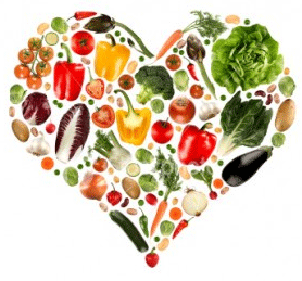Cancer Basics: Part I
BY DERYA SONER (MBG/IV)
a_soner@ug.bilkent.edu.tr
Cancer is the collective name given to more than a hundred diseases; what they all have in common is abnormal growth of the cells of the body. A normal cell has a certain life span; it is supposed to divide a limited number of times, then it should stop dividing and eventually die. Cancer cells fail to stop growing and dividing, and their abnormal growth causes either hard tumors, as in breast cancer, or abnormal cell counts, as in leukemia. Cancer can either be caused by a hereditary genetic mutation or environmental conditions called carcinogens or a combination of both.
 Benign tumors are not considered cancerous; they show abnormal growth but do not invade other parts of the body. Malignant tumors are considered cancerous because they invade and destroy nearby parts of the body or spread to other parts of the body through the blood stream, which is called metastasis. Sometimes, benign tumors are removed surgically as well for safety's sake, especially if they are in an easily operable location such as the breast.
Benign tumors are not considered cancerous; they show abnormal growth but do not invade other parts of the body. Malignant tumors are considered cancerous because they invade and destroy nearby parts of the body or spread to other parts of the body through the blood stream, which is called metastasis. Sometimes, benign tumors are removed surgically as well for safety's sake, especially if they are in an easily operable location such as the breast.
Symptoms of cancer to should watch out for are lumps or swelling, bleeding from the mouth or anus, ulceration, enlarged lymph nodes, liver or spleen changes, pain in bones or spine, unexplained weight loss and poor appetite, fatigue, excessive sweating, and abnormal blood counts. You should watch your blood counts, lungs, liver, pancreas, and spleen with yearly check ups. Women should perform self breast exams to check for lumps, and those over forty should get yearly mammograms for early detection of breast tumors. Men over forty should get their blood PSA levels and prostates checked annually for prostate cancer.
Liver and pancreatic cancers are perhaps the most sinister types of cancers because they are hard to detect and can effect many organs in a very short time. These can be detected with blood tests, ultrasound imaging, CT scans, MRI imaging, and biopsies. Symptoms you should watch out for are jaundice (sarılık), unexplained weight loss, loss of appetite, digestive problems, excessive fatigue, and abdominal pain.
Top Foods against Cancer
Kefir is a miraculous drink and is widely available in Turkey. Unfortunately, not many people are aware of its great benefits; kefir was shown to boost the immune system and have anti-tumor activity. This drink is useful for both the prevention of cancer, and is also advised to patients who are fighting cancer, since it can help stop tumor growth. Although you can't find this in restaurants, you should try and replace drinks such as coca-cola with kefir in your home; it tastes pretty much like ayran. It also keeps you quite full, unlike sweet drinks like coca-cola, so it is also a great choice if you are trying to watch your weight.
What are antioxidants?
All foods of plant origin, especially those with dark colors such as dark greens, reds, and oranges, work wonders against cancer, usually due to their antioxidant activities. We hear of antioxidants everywhere, but what do they do? Our metabolism usually yields molecules containing oxygen which are chemically very reactive and therefore damage the cells of our body. Antioxidants protect our cells by inhibiting the oxidation of other molecules and are therefore useful in preventing cancer, heart disease, and some neurological diseases.
Colorize your plate!
Tomatoes, oranges, grapefruit, strawberries, raspberries, blueberries, red grapes, red cabbage (karalahana), red beets (turp), broccoli, spinach, carrots, garlic, green tea, rosemary (biberiye), avocados, nuts, whole wheat, and beans are the most valuable sources of such anti-cancerous contents. You should try and eat at least two of these foods in each of your meals. The more colors you have on your plate, the healthier your meal will be.
In my next article, I will talk about the cancerous agents in our lives, such as dangerous foods, cigarettes, and cell phones, and I will try and explain how we can minimize their hazardous effects.